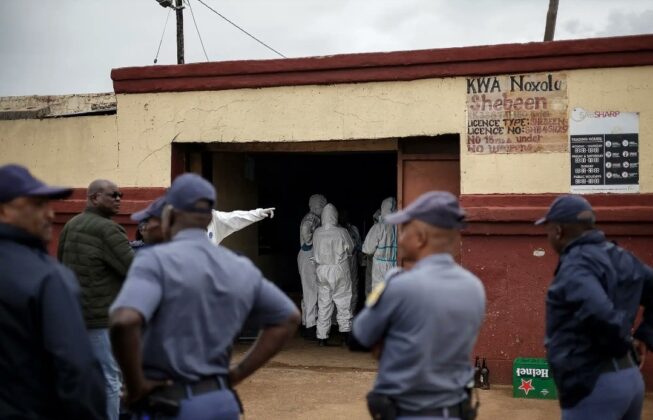South African exporters to face a 30% tariff increase on goods entering the U.S. market, effective August 7.
(The Post News)- In a move set to impact South Africa’s export sector significantly, United States of America (U.S) President Donald Trump has announced that South African goods entering the American market will be subject to a 30% tariff starting August 7. This development follows unsuccessful negotiations between the South African and U.S. governments aimed at averting the new trade measures.
The decision comes at a time when South Africa’s longstanding preferential access to the U.S. markets, under the African Growth and Opportunity Act (AGOA), are being eroded.
Previously, South African exports such as vehicles, citrus fruits, and other goods enjoyed duty-free access under AGOA provisions.
Minister of Trade and Industry, Mr. Parks Tau has expressed deep concern over the tariff hike, noting that it poses a serious threat to the country’s key export sectors, including the automotive industry, agro-processing, and chemicals.
In a public statement issued on Thursday, Minister Tau emphasized the government’s commitment to safeguarding jobs and finding pragmatic, evidence-based solutions to restore stability in trade relations.
South Africa stands out as the only sub-Saharan African country singled out for the higher tariff rate, amid broader trade actions affecting other nations in the region. Zimbabwe and Lesotho, for example, will be subject to a 15% tariff on exports to the U.S., effective on the same date.
The imposition of tariffs appears to be linked to recent diplomatic tensions between South Africa and the United States.
Notably, South Africa’s decision to bring a case against Israel to the International Court of Justice (ICJ), accusing it of committing genocide in Palestine, has drawn criticism from the U.S. administration.
In addition, controversies surrounding South Africa’s land reform policy were misrepresented in the U.S. media by groups such as AfriForum, as well as comments by entrepreneur Elon Musk accusing the government of land seizures and inaction over violence against white farmers, have added to the strain.
Furthermore, the U.S. government voiced disapproval over President Cyril Ramaphosa’s handling of Economic Freedom Fighters (EFF) leader Julius Malema, who came under fire for singing a controversial liberation song “Kill the Boer, the farmer “.
President Ramaphosa recently travelled to Washington, D.C., in an effort to de-escalate tensions and repair bilateral trade relations.
However, despite these diplomatic overtures, the U.S. government has thus far shown reluctance to reconsider its position.
In addition to the tariffs, Canada faces a 35% tariff, Switzerland 39%, and Brazil 50%, as part of a broader shift in U.S. trade policy.
The South African government continues to monitor the situation closely and remains engaged with its international partners to mitigate the negative impact on the economy and local industries.
Please share your thoughts contact Kgopotso: Journalist-Kgopotso@thepostnews.net



